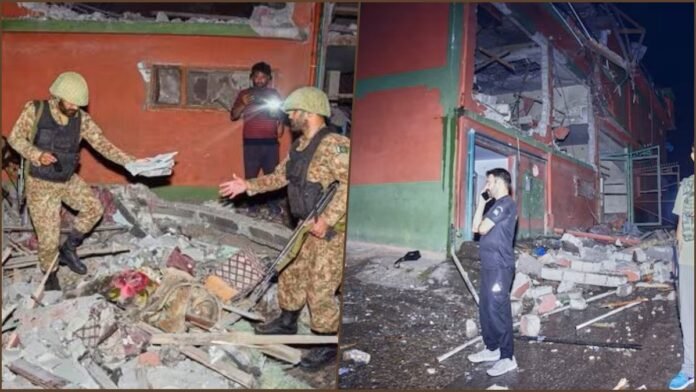
Key Points:
- India launched precision strikes on nine terror camps in Pakistan and PoK at 1:44 am, avenging the Pahalgam attack that killed 26 civilians.
- Strikes targeted major Jaish-e-Mohammed and Lashkar-e-Taiba hubs in Bahawalpur and Muridke.
- Pakistan retaliated with heavy artillery fire along the LoC, killing at least three Indian civilians and injuring others, including a mother and daughter in Poonch.
- Indian Army is responding proportionately to ongoing ceasefire violations, with exchanges reported in multiple border sectors.
- Indian strikes were focused on terror infrastructure, deliberately avoiding Pakistani military or civilian targets.
New Delhi: Fifteen days after the Pahalgam massacre, the Indian Armed Forces launched a major counter-terror operation, ‘Operation Sindoor’, targeting nine terror camps deep inside Pakistan and Pakistan-occupied Kashmir (PoK) at 1:44 am Wednesday. This joint Army, Navy, and Air Force action was a direct response to the April 22 attack in Pahalgam, which killed 26 people, including tourists and a Navy officer.
Precision Strikes on Terror Hubs
The strikes focused on key terror infrastructure, including Jaish-e-Mohammed’s headquarters in Bahawalpur and Lashkar-e-Taiba’s main base in Muridke-sites with a long history of orchestrating attacks against India. Other camps in Bagh, Kotli, and Muzaffarabad were also hit using advanced missiles and drones, with Indian officials emphasizing that no Pakistani military or civilian targets were struck.
Pakistan’s Retaliation and Civilian Casualties
Within hours, Pakistan responded with heavy artillery and indiscriminate firing across the Line of Control (LoC) and International Border, targeting frontline villages in Jammu, Poonch, Rajouri, and Kupwara. At least three Indian civilians were killed, including a woman and her daughter in Poonch, and several others injured, forcing residents to take shelter in bunkers. Indian forces are engaged in ongoing, calibrated retaliation.
Escalating Tensions and Ongoing Exchanges
Ceasefire violations have surged since India suspended the Indus Water Treaty following the Pahalgam attack, with Pakistani troops targeting multiple sectors along the LoC and IB. The Indian Army affirmed it is responding in a proportionate manner, inflicting casualties on Pakistani forces during the exchanges.
Government Response and National Impact
Prime Minister Narendra Modi monitored the operation through the night, vowing to hold the perpetrators accountable, while the Defence Ministry reiterated that India’s actions were “focused, measured, and non-escalatory”. Flight disruptions and heightened security drills were reported across northern India as tensions remain high.
Operation Sindoor marks a significant escalation in India’s counter-terror strategy, sending a clear message that attacks on Indian soil will be met with swift and targeted military action against terror infrastructure.












































